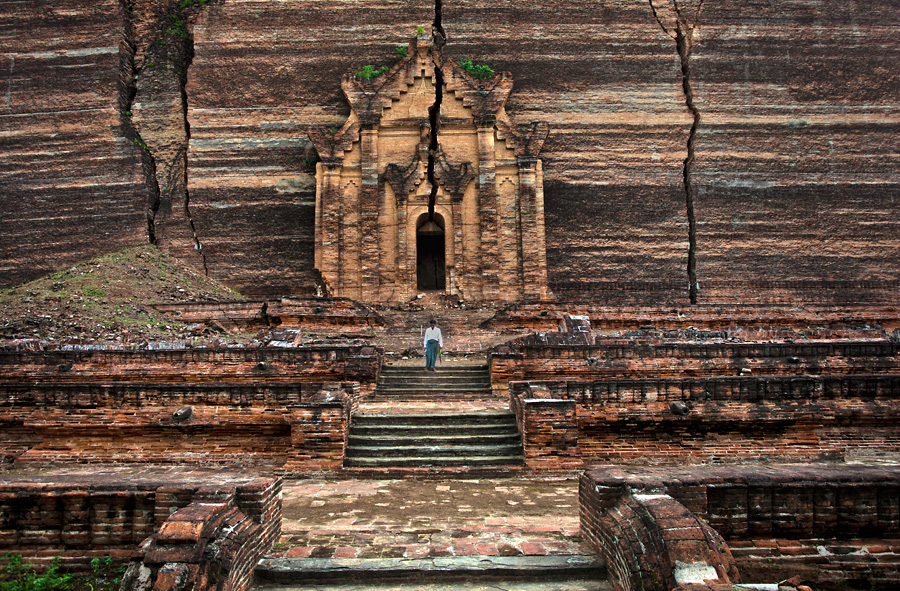If the giant pagoda at Mingun was completed, it would have been the largest in all of Myanmar and perhaps in the entire world. But when astrologers advised that the king would die on completion of the structure, work was suspended. Some ancient structures are charming due to their dilapidation and Mingun pagoda is one such place. An earthquake created large cracks in the structure more than a hundred years ago, which makes the incomplete pagoda appear slit into multiple pieces. Myanmar’s department of archaeology says they have no hopes of restoring the fragile structure.
The pagoda is one of the places we visit during our photography tour of Myanmar. When we were walking around the large pagoda, one of the things that caught our attention was the gigantic size of the structure.
But photographing just the pagoda would not have helped a viewer realize the sheer size of it.
To solve this problem, we decided to add a human element to the frame. One of the travellers in the group could go stand near the pagoda to provide a sense of scale. But a travelling visitor with modern clothes appears like a foreign element that doesn’t fit well in the environment of pagoda. The image would have looked very touristy. Keeping this in mind, we decided that our guide would be a better fit to stand by the pagoda. We requested him to walk to the pagoda and head back, facing us directly. He was a perfect and natural fit for the locale.
In many occasions, a human element makes a huge difference in travel photography. It helps –
- a viewer identify with the place and context, and connect better with the scene. This may not happen very effectively when we have only inanimate objects in the image.
- provide a sense of scale, as seen in this photograph.
- provide an interesting contrast and a point of attention/focus in the photograph.
But when we introduce a human element, we must ensure that the authenticity of the place and environment is not broken and the subjects do not look foreign.
Also see: Our photography tour to Myanmar.

